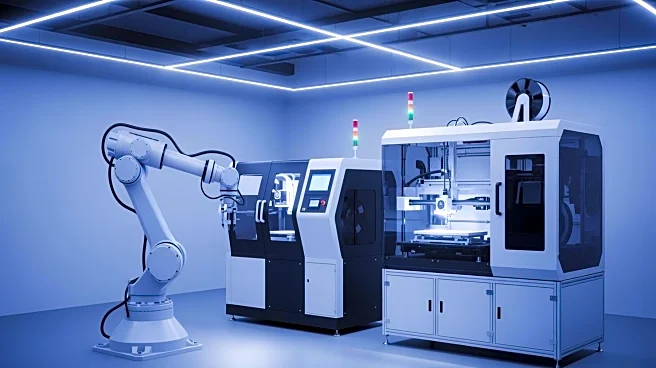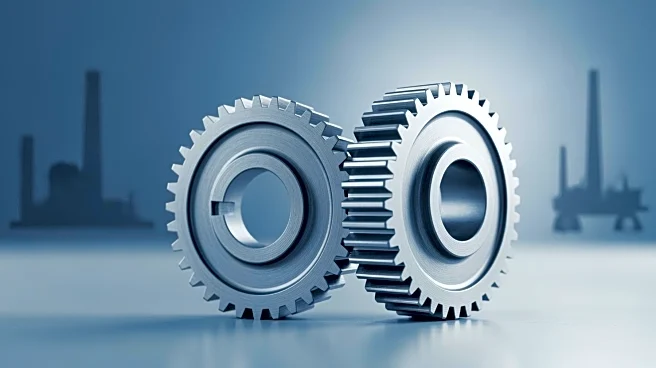What's Happening?
The role of Manufacturing Engineers is evolving with the advent of Smart Manufacturing technologies. Traditionally responsible for bridging design to production, Manufacturing Engineers now increasingly
perform tasks virtually rather than in the real world. This shift allows for concurrent engineering, where manufacturing definitions are created alongside product design, enabling engineers to influence design for easier assembly and testing. The use of digital twins and simulations enhances process validation and quality management, reducing lead times and improving product introduction cycles.
Why It's Important?
The transformation of the Manufacturing Engineer's role is crucial for the advancement of Smart Manufacturing. By leveraging digital tools and concurrent engineering, manufacturers can optimize processes, reduce costs, and accelerate time-to-market for new products. This evolution reflects broader trends in digital transformation and the integration of AI and simulation technologies in manufacturing. As companies adopt these practices, they may gain a competitive edge by enhancing operational efficiency and product quality.
What's Next?
The continued evolution of the Manufacturing Engineer's role may lead to further innovations in Smart Manufacturing. As digital tools and AI become more integrated into manufacturing processes, companies may explore new applications and strategies to enhance productivity and quality. The potential for digital twins and simulations to become operational tools, providing real-time decision support, is significant. Stakeholders, including technology providers and industry leaders, are likely to monitor developments closely, considering potential investments or collaborations.
Beyond the Headlines
The shift towards virtual manufacturing processes may prompt discussions on the ethical implications of automation and AI in manufacturing. As companies increasingly rely on digital tools, concerns about workforce displacement, the need for upskilling, and the impact on traditional manufacturing roles may arise. Additionally, the cultural shift towards digital manufacturing may influence how organizations approach employee training and development, emphasizing the importance of adaptability and continuous learning.









